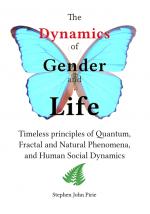There appears to be a large and significant blind-spot in the awareness of many people. This blind-spot can’t usually be seen or recognised directly. Like a galactic black-hole, we usually only learn of its presence by how it sucks the life and light out of surrounding bodies — in this case, ourselves and others in our communities, cities and world.
We can learn of its presence by the high and growing incidence of depression which is now recognised by the World Health Organization as “the leading cause of disability.”1
To some extent this black-hole, or blind-spot can be ignored by being busy, taking drugs, acquiring wealth or enjoying ourselves … but it remains in the background, sucking the energy and light from all. And no more importantly is its effect felt, than in the area of health and wellbeing .. the main focus for my contributions to this column.
It’s about time
I recently learned of this ‘blind-spot’ after reading about a self-development teacher who had achieved success; met and positively influenced world-leaders, and done or achieved many other wonderful things.
Why then did I feel deflated after reading about this person? Was it that, by way of comparison, I was left feeling inadequate, or a failure? Was it because I felt I hadn’t achieved great things?
No, I realised it went deeper and after sitting quietly and reflecting on the cause, recognised it … the blind-spot that many of us, if not most, don’t seem to notice. Part of the reason it is not recognised is that it is so simple to feel – it’s too obvious and taken for granted. So we ignore it.
And that blind-spot is something that Margaret Thatcher said or implied did not exist … that blind-spot is what we might call ‘society'2 — a sense of community, connectedness and shared responsibility for the plight of others.
And no more ignorant of this blind-spot are those gurus who rudely speak of success in the presence of so many unsuccessful, depressed people. Winners and losers. Black and white, us versus them. Where’s the sense of connection, community and shared responsibility when we speak of our success in the midst of those who are unsuccessful and depressed?
I’ve often had conversations with new-age believers who parrot that we create our reality. In response, as I often do, I ask "Indeed you do, but why then have you created a reality in which so many are suffering, a reality in which a large and apparently growing part of your “spiritual body” (the local community, nation, world) is in such ill-health?3
As a result of that question a curious disconnect occurs, “Oh, I’m not responsible for others (subtext) ...in my family or local community ...in my reality that I co-created”. Really? That’s like saying, ‘yes I create my reality but I’m not responsible for all of my body … my foot has gangrene, but I’m not responsible...”
And that is the blind-spot that seems to afflict new-age gurus the world over … the shared responsibility for the reality that we collectively and cooperatively create and experience. Gurus who speak of ‘success’ do everyone a disservice when they do not also speak of their failure to work in their local communities, lifting and enlightening everyone.
As has been more eloquently said by others, “while one person remains in jail, I am not free, while one person remains ill, I am not well.”
Is it not time we call to account those gurus who fail to lift and enlighten all, for the benefit and well-being of all? Is it not time we realise that a genuine guru would work among the poor, living among them, working with them, as did Jesus, Mother Teresa and Buddha?
Are we not justified in accepting that, by the above definition, there are few, if any genuine gurus alive today?
Perhaps it is time that we call forward (‘attract’ into our shared reality) someone who is willing and sufficiently honest, brave and aware to be another Jesus, Mother Teresa or Buddha.
See also
- 1. “Depression is the leading cause of disability as measured by YLDs and the 4th leading contributor to the global burden of disease (DALYs) in 2000.” URL ref:http://www.who.int/mental_health/management/depression/definition/en/
- 2. Society — “an extended social group having a distinctive cultural and economic organization”
- 3. Or more bluntly (which I'm prone to do): "If you create your reality, why have you created a reality in which so many people are suffering? Why have you created a reality in which we're unsustainably using resources and energy, hurtling towards our own extinction?" and so on.
